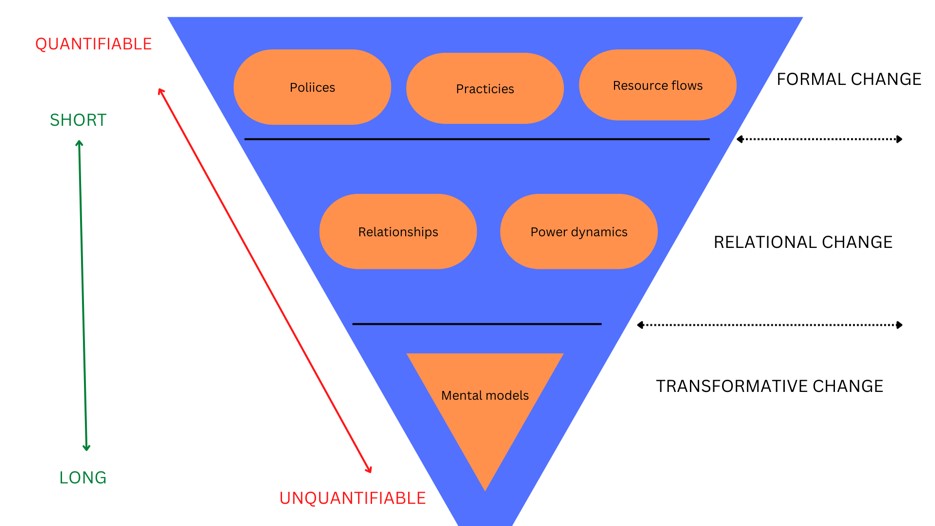At last – EDI is at the top or near the top of many university agendas.
While it’s welcome news – especially when the government is still trying to manufacture culture wars – confidence that visibility will translate into results is hard to come by.
That’s not only because EDI is largely conservative and does little to challenge the power structures which underpin institutional inequities. EDI has to be retired because in the eyes of the people it is supposed to serve – those excluded marginalised – it hasn’t delivered. Just look at the persistence of the Black awarding gap (28 per cent), the lived experience of disabled people, and the whiteness of senior leadership teams. Most damningly, EDI is perceived as not being designed to deliver. It’s become a fig leaf for tokenism, performativity and the preservation of privilege.
Process problems
But if we were to shift our attention from its conceptual flaws and ideological poverty, there are barriers in the form of institutional processes which hamstring all social justice work in universities (and similar large organisations).
For one, EDI work tends to happen in cycles linked to new strategies, leadership changes and staffing churn, resulting in a plethora of “legacy” action plans which are outdated and misaligned to new strategies and priorities but to which significant resource continues to be dedicated.
Another reason is that EDI actions are orientated towards outputs rather than outcomes, so that actions which can be counted – like-people who’ve attended training courses – are prioritised in favour of those which cannot be so readily measured (such as radical curriculum decolonisation, as developed and advocated by the FACE network).
Resmaa Manakem has argued that the EDI industry is permeated by “task and finish” logic dominated by white people who often as as chairs of white majority teams. Tema Okun has similarly described EDI logic as driven by a rush to “transactional goals” which insist upon upon as “finder-driven deliverables”.
Output based interventions such as training courses on things like identifying unconscious bias are ineffectual because they individualise what are structural and systemic issues (what’s more, there’s evidence that when people after confronted with their unconscious biases, it only reinforces them).
Along with output based interventions, EDI is dominated by symptoms based activities. These include activities such as safe listening spaces and support and report systems, essentially downstream interventions which act as sticking plasters and do nothing to confront how current structures and working practices allow injustice to thrive.
Often output and symptom based EDI activities are defended because they are visible and explicit –“look at how many people signed up for that!”
It’s easy to demonstrate quantitative “success” with output actions which are often easily quantifiable and scalable, like training courses. Despite their popularity and ubiquity, they are not what is likely to confront and destabilise structural and systemic inequities. Critical race theory – much maligned recently but more relevant than ever – has long told us to expect those who hold privilege will protect that privilege by tinkering at the margins but never pointing the finger at the power which keeps their status intact.
Systems change
Systems thinking approaches can help us to identify the kinds of interventions which will address the root causes of systemic inequities and injustice. Such approaches are increasingly used in social innovation studies to shift our attention from symptoms to causes. In the words of Social Innovation Generation (Canada), it involves “shifting the conditions which are holding the problem in place”.
They do so by identifying six conditions for systems change (or systems maintenance, depending on your perspective) represented in an inverted triangle (below). Mental models are at the base, relationships and power dynamics in the middle and policies, practices and resource flows at the top.

While the model allows for legitimating power to flow downwards as well as upwards, it emphasises that in most cases, unjust practices and policies are rooted in historically entrenched ideas, narratives and beliefs. Over time, these norms and beliefs have become naturalised so that they permeate and inform the logics of institutional practice without being “visible”. Not only does that mean they are widely circulated, but they become part of a collective institutional consciousness which is almost impossible to attribute to the decision of any individual who happens to be bigoted or prejudiced. As a result, they silently yet powerfully legitimate inequities, keeping them in place because they’re hard to identify and challenge.
Danger of misdirection
If we apply that logic to organisational social justice, it means that when we lament limited progress in race, gender, sexual orientation, and disability justice, it’s often not for want of effort. Rather it’s a misdirection of that effort and resources.
Systemic thinking encourages us to work on interventions which destabilise the norms and beliefs which underpin institutionalised inequities rather than symptom and output based activities which leave them intact. A common misconception is that what that means patronising lectures or information videos like “Sexism for Dummies” that people are gently directed to watch during their lunch break. In reality, transformational change can come from any section of the triangle of the system.
As an example, consider an institution wide policy to flip recruitment protocols to actively encourage applicants to foreground their lived experience, and to rewrite the wording of job advertisements accordingly too. That’s a policy which will challenge institutional narratives about the kinds of people the institution wants to attract, and who belong to the institution as well.
Or a policy that all staff from racialised minorities which receive a workload allocation and a salary increment for participation in anti-racism work (including the Race Equality Charter). Here’s a policy which will simultaneously redirect resource flows to a marginalised groups and alter beliefs about the value of lived experience in social justice work.
The latter will take longer of course, but the point is that universities need to deploy the kind of “patient capital” approaches favoured in social innovation work, where there’s a realisation that our most critical work will inevitably often only result in gradual transformation – and that’s not a bad thing.
Beyond tokenism
In resource-constrained environments the opportunity cost of doing something tokenistic is that something meaningful isn’t. To put it bluntly: are you going to explicitly reword your recruitment processes to attract minoritised staff, or are you going to offer another online tickbox training course?
Here’s the thing, university leaders. Those of us who have been marginalised by our organisations know when the university is playing with the problem and when they’re serious about dismantling what keeps it in place. Unsurprisingly we have a keen sense of justice. So, while there’s a short-term material cost to addressing beliefs and resource flows, there’s a much greater cost to institutional trust and credibility when it’s EDI business as usual.
You want more black and brown academics and students to belong to your university? Show us you mean it by taking action which matters.
James Baldwin’s words are as prescient as ever: “I can’t believe what you say, because I see what you do”.













An interesting idea: “Or a policy that all staff from racialised minorities which receive a workload allocation and a salary increment for participation in anti-racism work (including the Race Equality Charter). Here’s a policy which will simultaneously redirect resource flows to a marginalised groups and alter beliefs about the value of lived experience in social justice work.” Although I would suggest this should be available to staff from racialised minorities who CHOOSE to participate in anti-racism work (recognising that all minoritised folk may all be affected by structural inequalities). I’d also advocate for boundaries around these roles, so other colleagues… Read more »
That’s a good point. Recognition is important but so is the freedom to opt out and say no. There’s definitely an issue with the open-ended nature of EDI work in universities, and expectations on minoritised staff to work without boundaries.
A very informative read, thank you. I’d be very interested in read more about the ideas discussed as I design a project with a view to create a more inclusive workplace and study place for neurodiverse staff and students.
Absolutely Matt. Please to reach out at P.Pathak@soton.ac.uk
Thanks for this interesting article, but I have a few questions. I ask in good faith and am interested in any answers. 1. There are many strong claims here advocating actions to “address the root causes of systemic inequities and injustice”. But what are those root causes? And what is the evidence that initiatives like decolonising the curriculum will actually address them? You admit it’s hard to measure this, so you make hard statements on ‘root causes’ (without specifying them, let alone evidencing cause and effect) but allow your solutions to remain woolly. 2. Regardless of the issue / my… Read more »
Hi Longshanks. Thanks for your questions. From a systems change perspective, a root cause links to historically entrenched ideas and beliefs, so anything which has the potential to disrupt those are addressing “root causes”. Decolonising the curriculum (done properly) can destabilise the idea that non-Western forms of knowledge are less valuable.
In answer to your second question, I think you overstate the issues with fabricated lived experience, but I agree that the mechanism to encourage disclosure of lived experience will be trial-and-error. There’s nothing wrong with that; we’re at the foothills of that journey.
Thanks Professor Pathak. I very much appreciate you taking the time to answer. Destabilising Western preconceptions is no doubt a valuable activity which would enhance critical thinking across the board. However, I’m not sure how this would contribute to more concrete outcomes for those excluded or marginalised, especially if they’re Brits (which I understand to be the focus of things like awarding gap initiatives). I take your point about overstating issues with e.g. fabricated lived experience – it’s hard to tell I suppose how this would play out and I may well be overstating. Nevertheless, there would be an incentive… Read more »